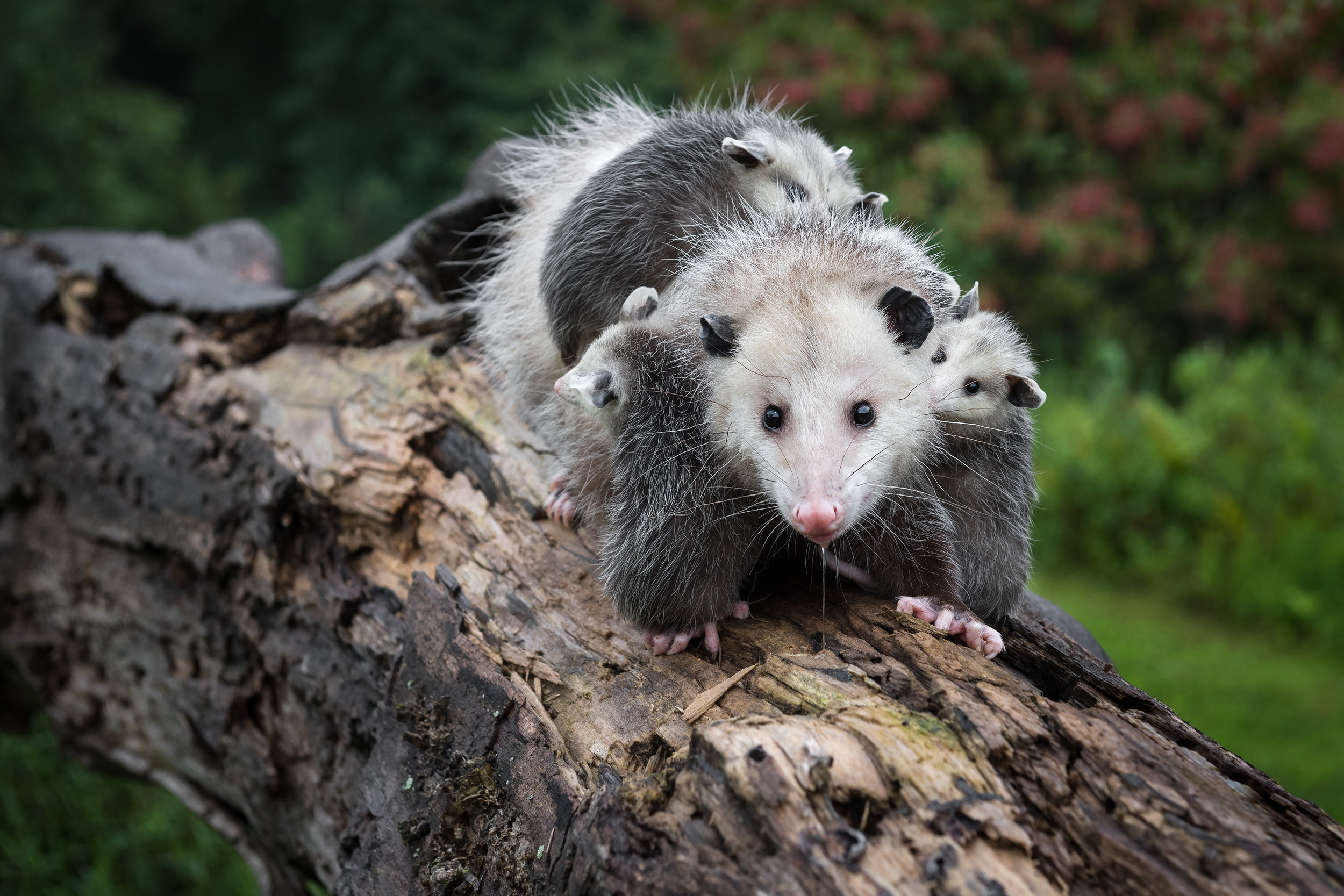Opossums, often referred to as possums, are small animals that can provoke curiosity and sometimes fear in people. With their unusual appearance and nocturnal habits, they can seem mysterious. But are opossums dangerous?
The Basics of Opossums
Opossums are North America’s only marsupial species, meaning they carry and nurse their young in pouches, like kangaroos. They have a distinctive appearance, with gray fur, a long prehensile tail, and a pointed face adorned with sharp teeth. Opossums are generally solitary, nocturnal creatures, which means they are most active at night.
Myth #1: Opossums Are Aggressive and Carry Diseases
One common misconception about opossums is that they are aggressive and carry diseases, posing a threat to humans and pets. In reality, opossums are more likely to play dead than attack. When threatened, they may fall limp and excrete a foul-smelling fluid from their anal glands, creating the illusion of death as a defense mechanism. This playing dead behavior is where the term playing possum comes from.
Opossums have a relatively low body temperature, making them less susceptible to diseases like rabies compared to warm-blooded animals. They are also known to groom themselves thoroughly, which further reduces the risk of carrying diseases.
Myth #2: Opossums Are Destructive Pests
While opossums may occasionally rummage through trash cans or gardens in search of food, they are generally not destructive pests. They have a varied diet that includes insects, small rodents, carrion, fruits, and vegetables. Opossums are often beneficial to homeowners because they help control populations of pests like ticks, cockroaches, and beetles.
Myth #3: Opossums Are a Threat to Pets
Opossums are not typically a threat to household pets. They prefer to avoid confrontations and will usually flee from dogs and cats. If confronted, opossums are known for their unique defense mechanism. They may open their mouths wide, display their sharp teeth, and hiss or make growling sounds to deter potential attackers. These displays are mostly for show, as opossums are not inclined to fight.
What to Do If You Encounter an Opossum
If you come across an opossum on your property or in your vicinity, there are some essential steps to follow:
- Observe from a Distance: Keep a safe distance from the opossum and allow it to move on. Opossums are generally not aggressive and are more likely to flee than confront you.
- Do Not Approach: Avoid approaching or trying to handle the opossum. While they may appear docile, they can bite if they feel cornered or threatened.
- Secure Your Trash: To prevent opossums from rummaging through your garbage, use tightly sealed trash cans or bins. This not only keeps your property cleaner but also discourages these animals from visiting.
- Remove Food Sources: If you have fruit trees, gardens, or pet food outdoors, consider removing or securing these food sources to reduce opossum attraction.
- Close Entry Points: To prevent opossums from entering your home or shed, seal any openings or gaps in foundations, walls, or roofs.
When to Seek Professional Help
In most cases, opossum encounters can be managed by following the above guidelines. However, there are situations where it’s best to seek professional assistance.
- Injured or Sick Opossums: If you come across an opossum that appears to be injured, sick, or immobile, contact a local wildlife rehabilitator or animal control agency for assistance. Do not attempt to handle the animal yourself.
- Recurring Opossum Problems: If you consistently have opossums causing issues on your property, consult with a pest control professional or wildlife removal specialist. They can assess the situation and recommend appropriate solutions.
- Zoonotic Diseases: While the risk is low, it’s essential to take precautions when dealing with any wild animal, including opossums. If you have been scratched or bitten by an opossum, seek medical attention to rule out the transmission of any zoonotic diseases.
Opossums Aren’t Dangerous
In truth, opossums are not dangerous creatures. They are more likely to benefit your environment by helping control pest populations. So, the next time you encounter one of these creatures in your yard, appreciate their role in the ecosystem and remember that they pose minimal risk to you, your family, and your pets.


